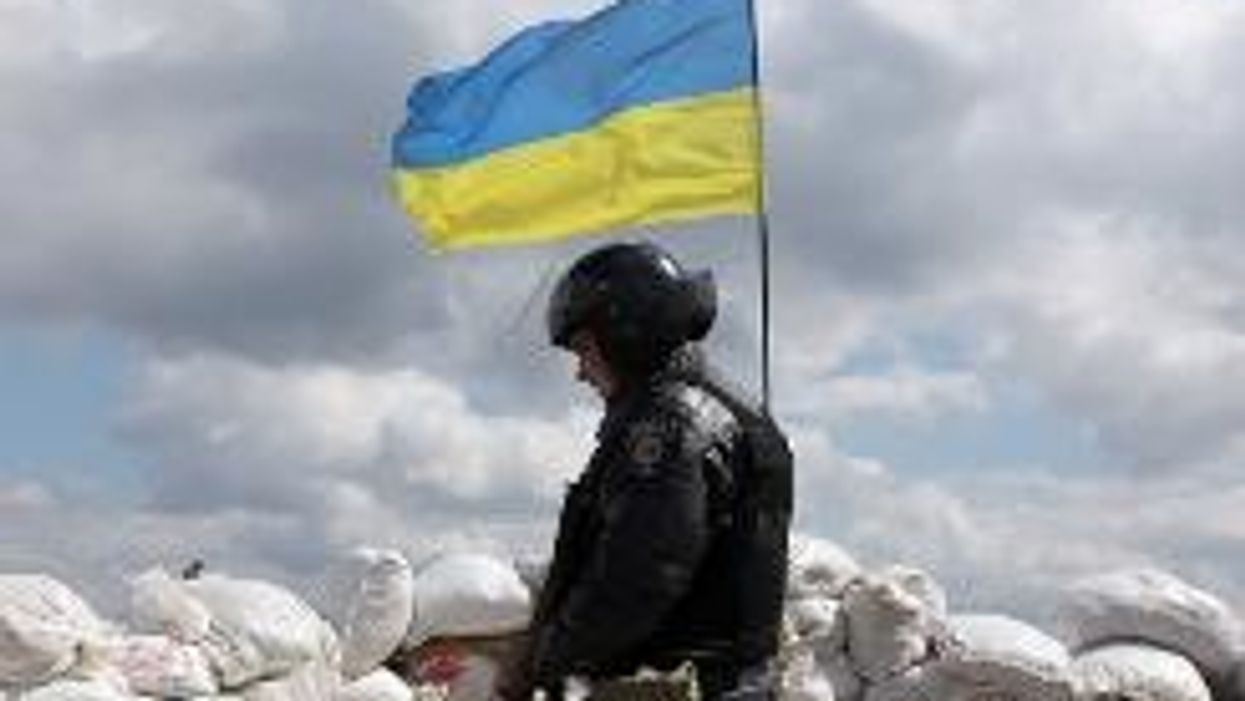Can Biden And Putin End The Ukraine Crisis Without Shots Fired?
A 19th-century Mexican president once summarized his country's plight: "So far from God, so close to the United States." Ukraine has the same problem, but with Russia. And its geographic proximity is particularly worrisome right now.
President Vladimir Putin, who annexed Crimea from Ukraine in a 2014 invasion, has raised fears he is planning another attack. He has massed troops near the border of the former Soviet republic, demanding that NATO renounce the possibility of Ukraine ever joining the alliance or providing bases for its forces.
The U.S. foreign policy establishment and its allies in Congress have taken this opportunity to remind us that they have no new ideas and that all their old ones are bad. They claim that American credibility is on the line and warn the Biden administration not to show insufficient resolve.
Rep. Michael McCaul (R-TX) said any accommodation on our part would "embolden Vladimir Putin and his fellow autocrats by demonstrating the United States will surrender in the face of saber-rattling." Retired Adm. James Stavridis, a former commander of NATO forces, declared, "Appeasement does not work any better now than it worked for Neville Chamberlain in the late 1930s."
There are a couple of flaws in their reasoning. The first is the gap between their fierce rhetoric and their mild remedies. Even McCaul and Stavridis don't think the U.S. should go to war if Russia invades Ukraine. Our support for Ukraine does not extend to putting our troops in harm's way. In case of a Russian invasion, whatever we might do to help Ukraine or punish Russia will not make much difference.
The second is that credibility is a false idol. President Joe Biden's critics accuse him of damaging ours with his chaotic withdrawal from Afghanistan. If Biden doesn't respond appropriately on Ukraine, they insist, China will assume it can swallow up Taiwan without paying a price.
But just because the U.S. leaves one conflict or avoids another doesn't mean it will follow the same course in another place or at another time. Bill Clinton pulled out of Somalia but intervened in Bosnia.
George W. Bush was forced to issue a meek apology to China in 2001 after an American military plane collided with a Chinese fighter and crash-landed on a Chinese island, where its crew was held hostage. But that didn't stop him from invading Afghanistan or Iraq.
As for "appeasement," diplomacy requires compromise, and not every compromise is the moral equivalent of surrender. When Ronald Reagan signed a 1987 treaty banning intermediate-range nuclear missiles from Europe, angry conservatives compared him to ... Neville Chamberlain. Two years later, though, the Berlin Wall came down.
Putin's posture is hardly evidence of Hitler-like ambitions. Suppose that Mexico were to enter an alliance that put Russian or Chinese troops on its soil to deter U.S. bullying. We would never tolerate it, any more than President John F. Kennedy was willing to tolerate Soviet missiles in Cuba.
The Russian president has indicated that, in parallel fashion, he is not willing to tolerate NATO troops, tanks, missiles and warplanes in Ukraine. The Kremlin is following "the NUPIMBY principle — No Unfriendly Powers in My Backyard," says Stephen Van Evera, an international relations scholar at Massachusetts Institute of Technology. "States almost universally resist the close approach of hostile powers and alliances toward their borders."
Michael McFaul, a former U.S. ambassador to Moscow, scoffed at such concerns, tweeting: "NATO has never and will never attack Russia." But in a dangerous world, nations can't count on the benign intentions of other nations — not in the short term, and certainly not in the long term. What counts is capabilities.
In this crisis, the U.S. wants to ensure the security and independence of Ukraine. Russia wants to eliminate the prospect of another NATO ally on its border. Fortunately, there is a solution that achieves both objectives without war: an agreement that Ukraine will be a neutral country, in exchange for Russia's commitment to back off and leave Ukraine in peace.
There is a good precedent for this solution. In 1955, Austria had to commit itself to neutrality in the Cold War to get the Soviets to end their military occupation of one zone of the country. As a result, wrote historian Tony Judt, Austria soon emerged as "a model Alpine democracy: neutral, prosperous and stable."
Ukraine has not been so lucky. But with a recognition of reality and some creative statesmanship, it could be.
Follow Steve Chapman on Twitter @SteveChapman13 or at https://www.facebook.com/stevechapman13. To find out more about Steve Chapman and read features by other Creators Syndicate writers and cartoonists, visit the Creators Syndicate website at www.creators.com.




